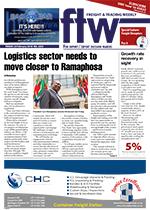As Hamburg Süd begins its journey under new owner A P Moller-Maersk, the carrier has made it clear that it will operate as a commercially independent brand with its own sales and marketing and customer service team. The ownership of the group officially changed in December last year following the decision by previous owner Dr August Oetker to pull out of shipping and sell the company to Maersk. “Our customers will continue to be very clearly front and centre for us in the future. For them there will be no change in the product they receive from us,” said newly appointed CEO Dr Arnt Vespermann, who has been with the company for 18 years. Commenting on the impact on local operations, Durban based general manager – area South Africa, Jose Jardim, echoed this global message. While the merger would offer cost savings through the optimised network and equipment pool, which would be operated by Maersk, the local organisation would remain unchanged, said Jardim. “We believe that our decentralised organisation with local office empowerment is the way to maintain service levels and provide the flexibility to react fast to market change,” he told FTW. The company’s sub-Saharan African services operate between South America and South Africa, Angola and the Democratic Republic of Congo. “Our immediate focus is to ensure that we offer a premium service in the trades in which we operate,” said Jardim. “The next step will be to look at new products to different destinations within the Maersk network. But nothing has been decided yet and we will always look for opportunities to develop our brand.” For the future, Jardim is upbeat about opportunities. “In South Africa we are very positive that export volumes will grow on the back of an increase in commodity export volumes due to higher economic growth worldwide,” he told FTW. “On the import side it’s a bit of a ‘wait and see’ on the economic front. But considering the recent rand appreciation we could see growth in import volumes to South Africa.” He’s also bullish about opportunities in Angola. “Angola is mainly an import driven economy and relies largely on the oil price to maintain the US dollar currency flow and support the import of goods,” he said. “The Angolan economy has improved after a big dip due to the oil price. “But the recent recovery of the oil price will help the economy to increase imports – although still with a lot of volatility.” Clearly the message is that it’s business as usual for Hamburg Süd customers – the only difference is that it can now mobilise the global service network of the world’s largest shipping company to provide a wider product range.
INSERT
The next step will be to look at new products to different destinations within the Maersk network. – Jose Jardim

